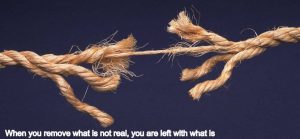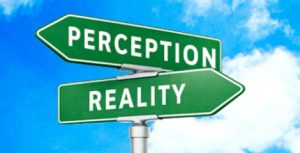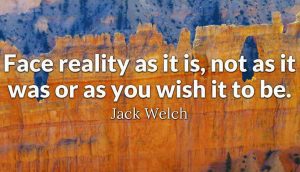 Back in the early 70’s I had a live-in boy friend, who was a philosophy student. His father was a famous philosopher, was a Hegel expert.
Back in the early 70’s I had a live-in boy friend, who was a philosophy student. His father was a famous philosopher, was a Hegel expert.
Hegel, I hear, is one of the most impenetrable philosopher to me. The family, father and three sons, had regular philosophy lessons.
I am not interested in philosophy, not a debating/argumentative person, but lately I am encountering philosophical questions that are at the root of my teaching: teaching you to be in harmony with life, teaching you to live a happy life. ((Here is an interesting philosophical article, that I chewed myself through… not pragmatist at all.))
One of the most important questions here is what is reality, what is real, because all that unhappiness we experience comes from what is not real.
What the dictionary says is not very useful… because what is the criteria? ((re·al·i·ty noun
- the world or the state of things as they actually exist, as opposed to an idealistic or notional idea of them.
synonyms: fact, actuality, truth
a thing that exists in fact, having previously only existed in one’s mind.
the quality of being lifelike or resembling an original.
synonyms: verisimilitude, authenticity, realism, fidelity, faithfulness
antonyms: idealism
2.
the state or quality of having existence or substance.
“youth, when death has no reality”))
Of course, given our sensory organs and their limitations, the fact that most of reality lives in the invisible, and given our propensity ((noun: propensity; plural noun: propensities
an inclination or natural tendency to behave in a particular way.
“a propensity for violence”
synonyms: tendency, inclination, predisposition, proneness, proclivity, readiness, liability, disposition, leaning, weakness)) for having thoughts that have emotional effect on us, we have NO IDEA what is really real what isn’t.
I am a pragmatist…
 I am a pragmatist… I am guided more by practical considerations than by ideals, and the practical consideration for me: does it improve your life, does it raise your vibration, does it make you more effective at living your life?
I am a pragmatist… I am guided more by practical considerations than by ideals, and the practical consideration for me: does it improve your life, does it raise your vibration, does it make you more effective at living your life?
And even in the “how to teach” area I am more pragmatist that anything: my only goal in teaching is not to hear my voice, not to feel how smart I am, not how good what I am saying sounds; instead I am looking at you, the student, and I measure what is invisible but a good indication that you are more effective at living your life with the teaching than you were before the teaching.
I invented a methodology in my second year (1987) of participation in Landmark Education. It was inspired by a 12-step program plus a Landmark concept… and the Playground was born. ((Landmark Education is great at many things, but it is not great at really teaching anything… but why?
Because really teaching is a lot of handholding. And that is time consuming, and doesn’t pay well.
Landmark invented a method where unpaid participants (assistants) “coach” other participants…
But the system doesn’t quite work, because the training methodology looks only at certain measures to see if the assistant is qualified to coach… measures that don’t matter from the point of view of teaching.
Teaching is only teaching if it results in a lasting change in perception, and behavior. And Landmark Education, according to my personal experience and my muscle testing, doesn’t do a good job at that.))
The Playground was the first program I participated in (alas, as a leader more than a participant) that altered lives.
The first Playground practiced one movement, one perceptional move, and it produced miracles. With just movement.
The practice movement was to shift the attention and the emphasis from the words and emotions to reality.
 We defined reality as what can be perceived, without words, by our sense organs. What a Martian would see/hear/smell etc.
We defined reality as what can be perceived, without words, by our sense organs. What a Martian would see/hear/smell etc.
Without the meaning. And by god, it worked. It worked mostly because of repetition. The kind of repetition that helps internalize what you learned… helps you able to make it instinctual. Automatic.
The principle was entirely Landmark, but the practice was what was new, and the practice is what made it work.
I revived the Playground a few years ago, and the first two times, it was a definite blah, mech experience because of the lack of lasting results. In fact it didn’t have any effect on how people lived their lives.
People didn’t practice between the calls, they were coming only to hear something new… not to learn how to live friction free… Because that is what we are learning. Living friction free.
One of my students in the current Playground is separated. He went to pick up the kids from their mother, and all four started to cry, and carry on that they didn’t want to go with daddy, that they hated to be with daddy.
Everyone looking on, including the mother, were mortified. But my student wasn’t… He said: it’s OK if you don’t want to come…
In the end the kids went with him and they had a blast. He did not bat an eye… no upset, no personal hurt. No problem.
This is what is possible.
In the current version of the Playground we meet, as a group, once a month, and the in-between weeks the participants pair up and have their own calls, called partner calls. The calls are recorded. I listen to their calls, every call, and give feedback. They also have the option to have email access to me.
The pairs practice the moving from unreality to reality, and they do exceptionally well: the average vibration rose by 70 points.
The partners that try to talk about it, instead of doing it, where one participant is trying to teach the other, don’t fare well, which proves my point, that you need to do it to learn it. Talking about it doesn’t help.
Half of the pairs do well… Half don’t. 50%. And the course is not even halfway through.
Compare that to the “normal” effectiveness of any whole program or course where the results are 1-2%.
 I also add, every monthly session, a new distinction from the invisible reality, so what is reality moves from the simplistic view of the Martian to a rich layered view…
I also add, every monthly session, a new distinction from the invisible reality, so what is reality moves from the simplistic view of the Martian to a rich layered view…
The other day I promised to create a little document to describe what the “finished” state of the transformation will look like.
It is quite simple:
- 1. You’ll habitually move from something upsetting or disturbing to reality, where nothing is missing, nothing is wrong, there is nothing to fix.
- 2. You’ll experience a serious reduction in mental treading water, the amount of noise in your head, and the time you spend in different emotions. In fact, the best of you will experience silence… and won’t suffer from or act from emotions… consciously or unconsciously. ((I have a friend who claims he feels nothing, but his knee jerk reactions, his impulsive actions tell me otherwise. He is literally self-damaging… his own victim.))
- 3. You’ll be able to become more aware of your surroundings, your inner workings. Become more tolerant and forgiving for your and others’ shortcomings. Priceless
- 4. Your ability to see value that you couldn’t see before makes life a lot happier. Appreciation and gratitude will become available to you. Appreciation literally means: seeing and recognizing value.
- 5. You’ll experience joy when you least expect it.
- 6. Your TLB will be growing, you’ll be able to, finally, start getting good at what you haven’t been able to master, because before it felt difficult, unappetizing, or not possible… and you’ll be better at your work, and able to make a lot more money with much less effort.
- 7. Your relationships will become a lot more harmonious and friction free.
- 8. You’ll become a lot more organized now that you are not jerked around by desires, and urges, and other nasty emotional b.s.
- 9. You’ll be able to accept yourself as you really are, and start experiencing self-love… sweet.
- 10. Finally you’ll be able to complete, come to terms with parental abuse, and see your parents for what they were, people who did what they thought was OK… because they didn’t know any better.
- 11. You’ll welcome criticism and feedback and be able to tweak your behavior so you get even more out of life.
I’ll add to this list when I get to see more… there is more…
I’d like to start a new Playground sometime in April or May. If you think you are ready: please let me know.
I’ll attempt to schedule the group call time to fit your schedule. I am available almost any time between 6 am and 7 pm… I go to bed at 7 pm.
Each monthly session is 2-4 hours long, depending how it goes… The partner calls are about an hour long, and are at least once a week.
 Sign up to the Playground
Sign up to the PlaygroundRead the original article: Reality… the pragmatic approach that removes the misery, the suffering, even frustration